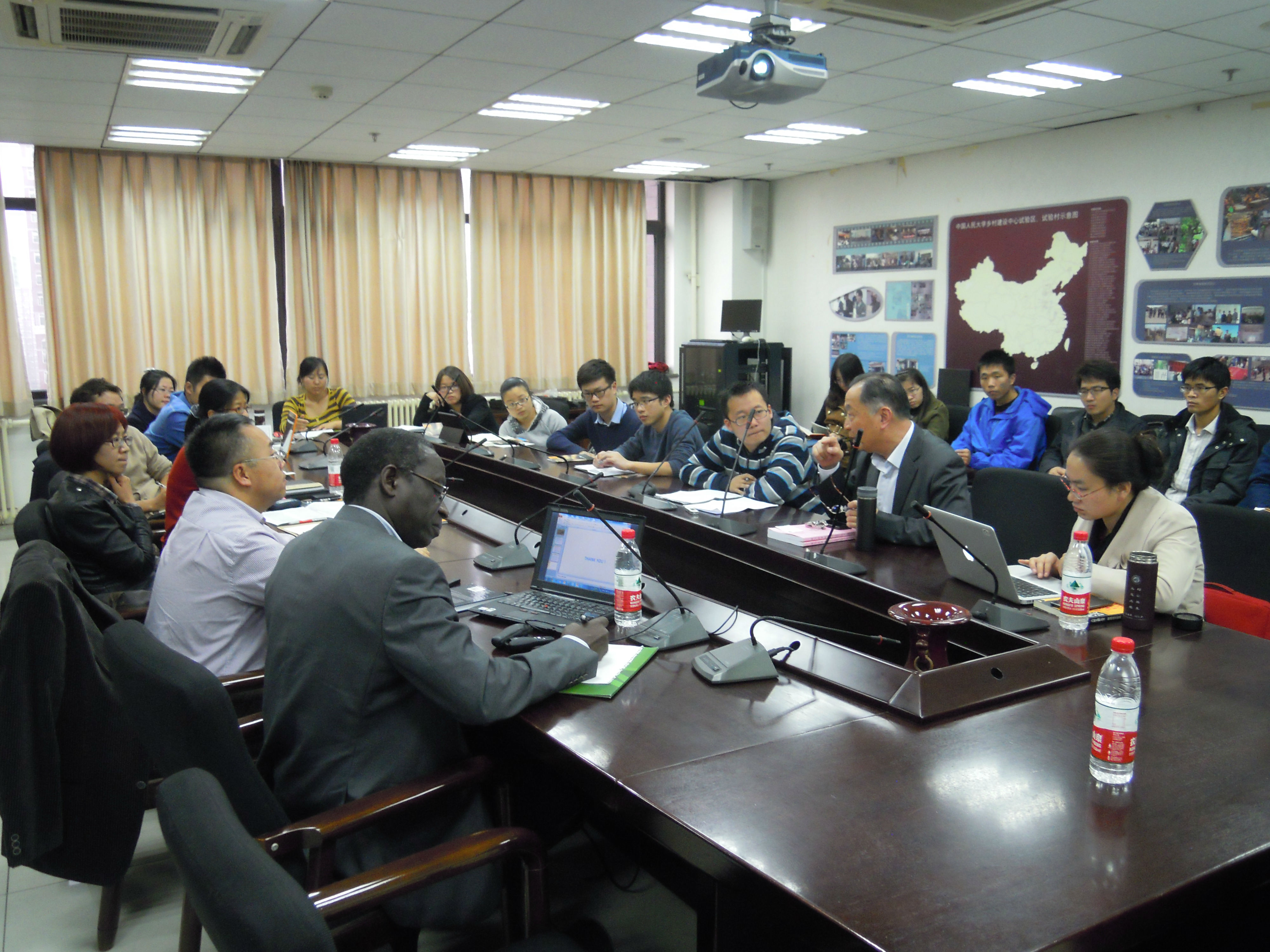2013年10月21日,中国人民大学可持续发展高等研究院、中国人民大学公共管理学院于北京主办,西南大学best365体育在线协办Madiodio Niasse博士学术报告: “Land and water as increasingly strategic resources in the new geopolitics of food security”。学院执行院长温铁军教授作主持人,学院薛翠副教授作点评人。
报告摘要:
Over the past five decades the global agricultural production has grown 2.5 times, yet this impressive exploit came at a high cost. A quarter of the world’s arable land is severely degraded or in the process of being degraded and freshwater is withdrawn at unsustainable rates. Still, it is projected that the global agricultural output has to increase another 50-70% by 2050, to keep pace with global population growth and changing consumption patterns. This tension between the shrinking and degrading state of land and water and the ever-increasing need for more agricultural production has led to the global rush for land and water we have been witnessing since the mid-2000s.
In the light of this intensifying global rush for land and water, Dr Niasse argues that the way in which land and water are governed has become anachronistic. First, land and water are still subject to management practices that prioritise technocratic solutions. The resource management ignores the unequal power relations surrounding land and water resources at local and international level, which result from the uneven distribution of the resources and competition over them.
Second, in spite of significant advances in research and awareness about the need for holistic and integrated approaches to water and land, these resources are typically managed in isolation from each other. This becomes a serious obstacle to sound management in a context of scarcity. The availability of water and quality of farmland are interconnected: the way land is managed affects water use and quality, and vice versa.
Third, land and water are still dealt with in the confines of nation-states –or at best at levels of river basins– hence ignoring or underestimating the increasingly internationalized nature of land and water politics and market dynamics, as evidenced by the current intensification of transnational land deals. The current status and trends in the availability of, and demand for, land and water, give rise to a new geopolitics of land and water. They are becoming increasingly strategic resources.
Dr Niasse argues that this new geopolitics of land and water calls for a more strategic governance (rather than management) in which land and water are reconnected and the political dimension of their allocation and use recognized.
主讲人简介:
Dr. Madiodio Niasse serves since November 2008 as Director of the Secretariat of International Land Coalition, based in Rome, Italy. ILC is a global independent alliance of 150 intergovernmental and civil society organizations established to promote secure access to land for the poor. Prior to joining ILC, he served as Senior Researcher with the French Institute for Development Research (IRD) in Montpellier, France (2007-2008); and earlier as Water Programme Coordinator with IUCN-West Africa in Ouagadougou, Burkina (2001-2005); as Senior Policy Advisor with the World Commission on Dams in Cape Town South Africa (1998-2000); as Senior Social Policy Advisor with USAID/West Africa (1992-1998); and as researcher with the Institute for Development Anthropology (IDA) in Matam, Senegal (1988-1992). Dr. Niasse is former chairperson of the Roster of Experts (Inspection Panel) of the Independent Review Mechanism of the African Development Bank (2007-2010); and of the West Africa platform of the Global Water Partnership –GWP (2005-2008). Dr. Niasse’s research work has focused on land and water management and governance, farming systems; wetlands management and climate change adaptation. Dr. Niasse, a citizen of Senegal, holds a Doctorate in Environmental Science and a Master in Geography from the University of Dakar, Senegal.
